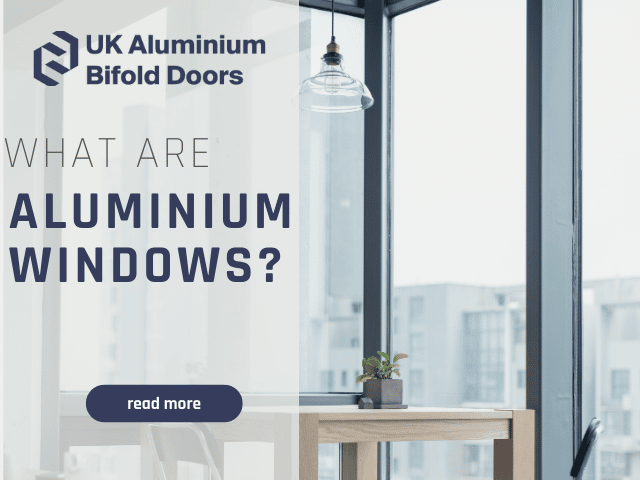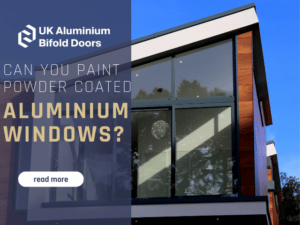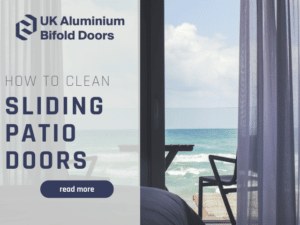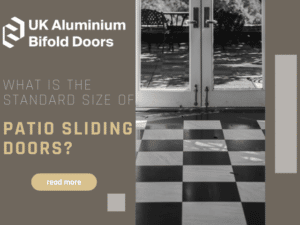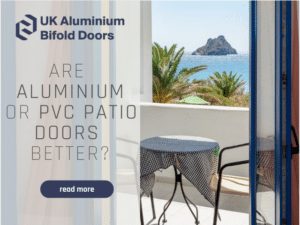Aluminium windows are windows that have aluminium frames or sashes instead of window frames made from other materials like uPVC or timber.
You should choose high-quality aluminium windows if you have a modern or contemporary home, as they fit that style best. You can still have aluminium windows on any other style house, though. The best part about these windows is that they just generally look great and can typically be made in any colour.
Whether you’re looking to add new windows to a new house, new windows to an old house or if you’re considering replacing your existing windows, the minimalistic appearance and slim sightlines of these windows mean that they fit in with any style, era and taste.
Types of Aluminium Windows
Aluminium windows are available in a variety of different types to suit the needs of different rooms.
Different types of aluminium windows can be classified by their opening options. These opening elements are used to describe the kind of window you’ll be getting.
Casement Window
This is the most popular and most common type of window. Casement windows are attached to the frame by one or more hinges on any side. Casement windows are also commonly known as side-hinged windows.
A flush casement aluminium window is a casement window that has slimmer frames. This allows it to sit flush against the house without any overlap on the outside.
Inward Opening Window
This is a casement window that opens inward, making the window easier to clean on both sides. This window is also seen as a good way of escaping a room in a pinch. The side-hung window is attached to the window frame by hinges on either side.
Turn and tilt windows are also inward opening and offer two options. To ventilate from the top in the “tilt” function or to open it like a regular side-hung window in the “turn” option. These types of windows typically have a dual hinge system.
Tilt-before-turn windows are the same as turn and tilt windows, with the difference being the positions of the window handle.
Sometimes the handle on aluminium doors can get damaged, so knowing how to fix the handle on a window can be pretty significant.
Bottom-hung (tilt-only) windows have hinges on the bottom of the frame. They only open in a tilt position to create a vent into the room rather than opening all the way.
Outward Opening Window
This is another common type of window that is typically side-hung. This means that there are hinges on either end of the frame. These windows open outward as opposed to inward.
A top-hung window of this type has hinges on the top of the frame. This allows the window to open outward at a limited angle rather than opening up all the way.
Sliding Window
These windows typically slide horizontally, left or right and have no hinges attaching them to the frames. These windows rely on railings to allow them to slide back and forth.
Folding Window
Folding windows allow you to use the aperture in which the window is fitted. These windows can be folded in a specific way to increase the size of the opening through the use of a railing. These windows can be folded inward or outward.
Pivot Opening Window
The vertical pivot opening window also allows for more of the window to be open. This is different from typical window openings, and it allows for bigger size windows to be installed. The pivot mechanism is located on the top and bottom of the frame, close to the centre of the window. The windows open by pivoting both inward and outward.
A horizontal pivot opening window opens up vertically so that it’s parallel to the ground. The pivot mechanism is located on either side of the window frame towards the centre of the window. These windows offer wide and uninterrupted views of your surroundings.
Fixed Window
Fixed windows don’t open and close and have no hinges on the frame. These windows aren’t built to allow any ventilation in a room. They are more for the light and the view than they are for airing out a room.
Advantages of Aluminium Windows
Aside from the look, why should you choose aluminium windows for your home or renovation? There are some advantages of aluminium windows that you won’t get with uPVC windows or timber windows.
Durability
The durability and longevity of aluminium windows are some of the biggest benefits of installing these in your home. Aluminium windows have a lifespan of up to 40 years!
Aluminium windows are harder to bend. They also tend to be more resistant to the elements, so there’s less chance of them warping, corroding or flexing in any way.
Low maintenance
Aluminium windows don’t require a lot of upkeep or maintenance to keep them looking good and working as they should. As long as you choose powder-coated aluminium windows, they should require no heavy maintenance and be weatherproof.
Aside from regular cleaning of the glass, you only really have to clean aluminium windows every 2- 4 months to remove any dirt from the window frames. This timeline might vary depending on the finish of the windows but not by much.
If you ever need to change the glass in your aluminium windows, we have a guide for it here.
Unlike timber windows, aluminium windows also don’t attract any pests or insects.
Affordable
Aluminium windows are the most affordable option when you really look at it. Timber windows will cost less to buy and install, but then there are the ongoing maintenance costs to consider.
uPVC windows are cheaper than both timber and aluminium windows, but the material isn’t as durable and degrades over time. This can lead to replacing the windows much sooner than you’d have to and maybe even several times over the lifespan of an aluminium window.
Thermal efficiency
Aluminium windows have more thermal efficiency than windows made from other materials. Heat gain and heat loss are improved by the thermal break in the aluminium window, which boosts heat retention and lowers heat loss. The thermal break is present between the glass’s inner and outer panes. You can actually decrease your energy bills by choosing aluminium windows for your home.
On top of this, aluminium windows are eco-friendly as aluminium is a 100% recyclable, sustainable and non-toxic product. It only takes about 5% of the energy required to make aluminium to recycle it.
Customisable
You can get aluminium windows in many styles, sizes and a wide range of colours without compromising on the quality of the windows! You can also customise the glass by choosing your glazing. So you can ensure that your new aluminium windows are designed specifically to fit your home.
Aluminium windows are very lightweight but still very strong, which is why they can use less aluminium to give you slimline aluminium windows. They don’t look as bulky; they have a sleek look and allow for more natural light to enter the home.
You can add more security to your home by having lock systems installed on your aluminium windows, and you can also make them soundproof with certain modifications.
Disadvantages of Aluminium Windows
There are many benefits to installing aluminium windows, more than there are disadvantages. That said, there are a few things that you might want to take into consideration before taking this step.
Cost
Aluminium windows cost a lot to be installed initially. They don’t cost as much as timber frames would, but they do still cost quite a bit. Especially if you have them customised, such as having them done in a big size or a certain colour or with a certain kind of powder coating.
The number of windows that you want to install also factors into the cost on top of the cost of the actual installation. The kind of house and accessibility of the areas where the aluminium windows need to be installed can also play a factor in the cost.
The area that you live in can also play a part in how much money you’ll have to pay. Installation costs vary from area to area, as do the shipping costs of the aluminium windows. It depends on where the factory is in relation to your home.
However, the cost of aluminium windows is usually cheaper compared to something bigger, such as the cost of roof lanterns.
If you have to create windows as opposed to replacing existing windows, this can also incur new costs. On top of the costs of the windows and the installation, you’ll have to pay someone to create the new openings.
You might have to hire a structural engineer to tell you where you can and can’t put the windows. If you have a historical home or an older home, you might even need planning permission before you can replace or install any windows at all.
If you’re looking to learn how to remove an aluminium window, take a look at our helpful tips.
FAQs
What are the different types of aluminium windows?
You get fixed pane, sliding, folding and casement aluminium windows.
Are aluminium windows the strongest windows?
Although aluminium windows are incredibly durable, fibreglass windows are the toughest windows available.
What is the lifespan of an aluminium window?
Aluminium windows can last between 20 to 25 years with very little maintenance.

